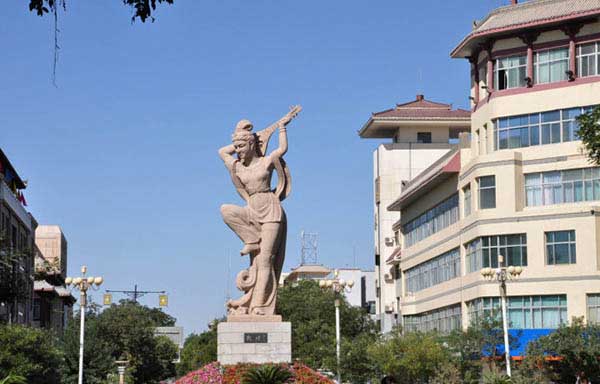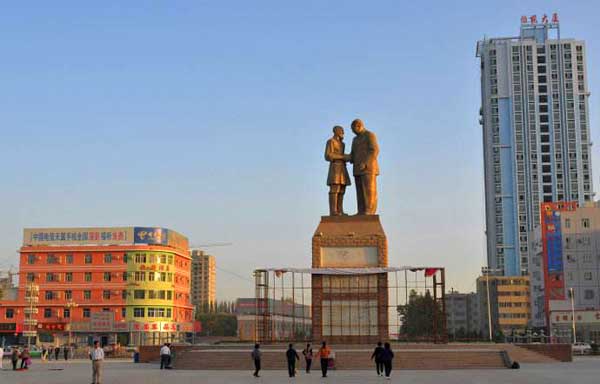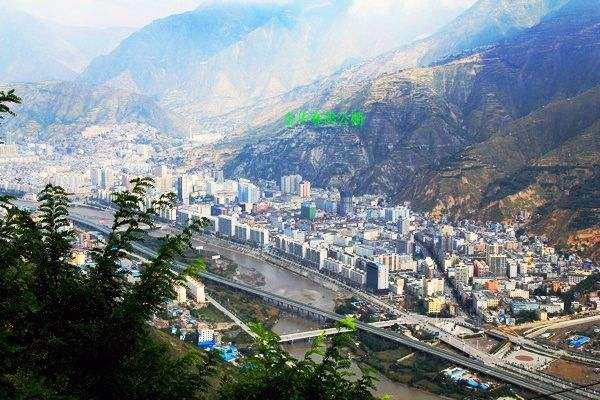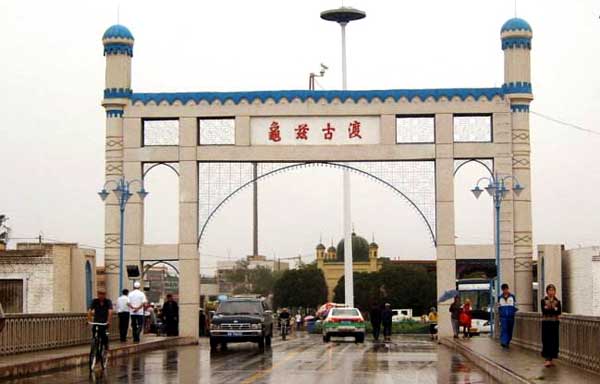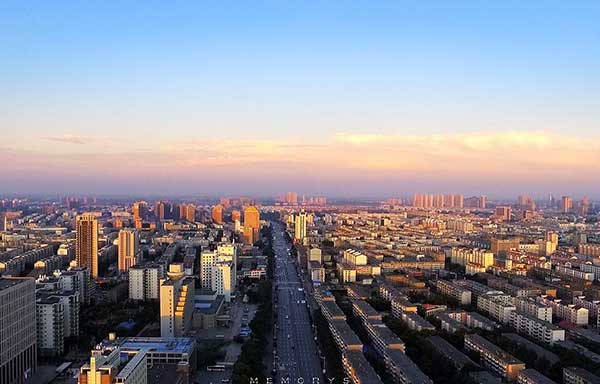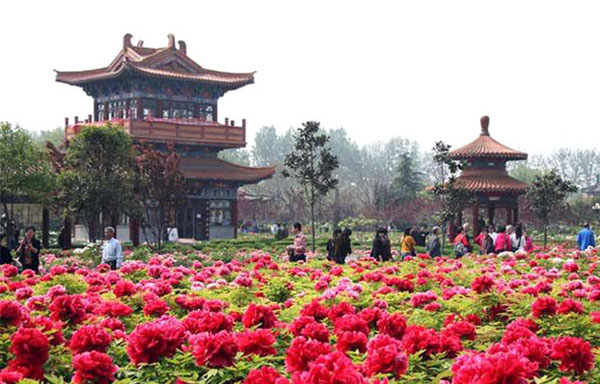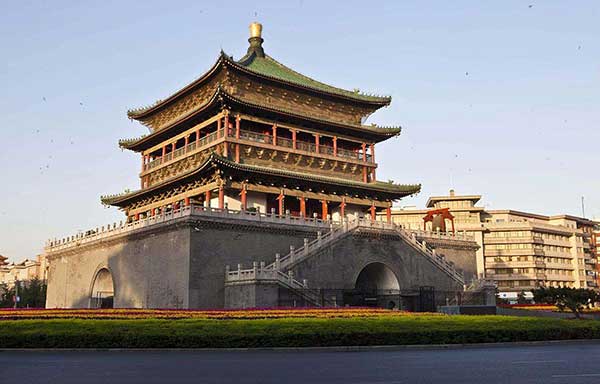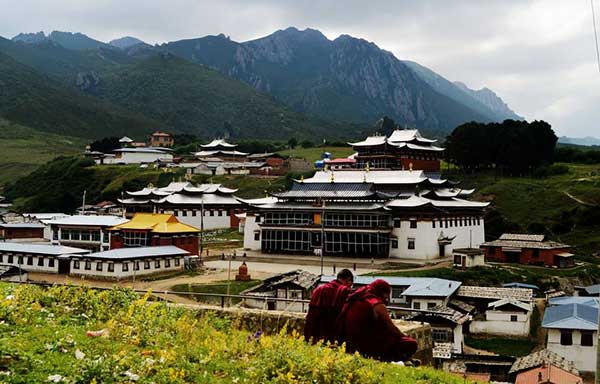- By admin
- In HistoricalFigures
- 2020-02-19
Kumārajīva
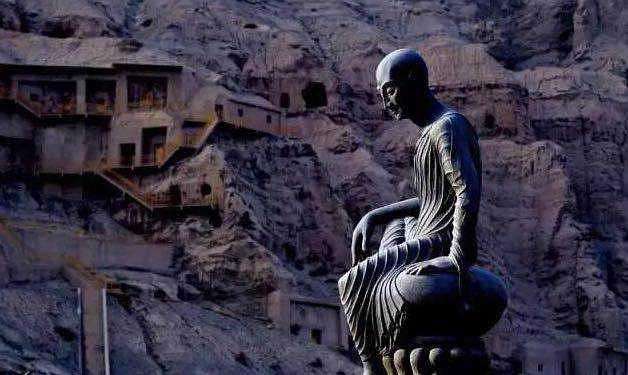 Kumārajīva was a Buddhist monk, scholar, missionary and translator from the Kingdom of Kucha. He is well-versed in Mahayana and Hinayana teaching as well as Tripitaka. He enjoys the fame as the greatest Buddhist translator of China and is respected as the originator of eight Chinese Buddhist schools.
Kumārajīva was a Buddhist monk, scholar, missionary and translator from the Kingdom of Kucha. He is well-versed in Mahayana and Hinayana teaching as well as Tripitaka. He enjoys the fame as the greatest Buddhist translator of China and is respected as the originator of eight Chinese Buddhist schools.
Family and background
Kumārajīva was born as a legend, his father Kumārāyana was from ancient India, probably from present-day Kashmir, and his mother was a Kuchan princess who significantly influenced his early studies. His grandfather Ta-to is supposed to have had a great reputation. His father became a monk, left Kashmir, crossed the Pamir Mountains and arrived in Kucha, where he became the royal priest. The sister of the king, Jīva, also known as Jīvaka, married him and they produced Kumārajīva. Jīvaka joined the Tsio-li nunnery, north of Kucha, when Kumārajīva was just seven.
Childhood and education
When his mother Jīvaka joined the Tsio-li nunnery, Kumārajīva was just seven but is said to have already committed many texts and sutras to memory. He proceeded to learn Abhidharma, and after two years, at the age of nine, he was taken to Kashmir by his mother to be better educated under Bandhudatta. There he studied Dīrgha Āgama, Madhyama Āgama and the Kṣudraka, before returning with his mother three years later. On his return via Tokharestan and Kashgar, an arhat predicted that he had a bright future and would introduce many people to Buddhism. Kumārajīva stayed in Kashgar for a year, ordaining the two princely sons of Tsan-kiun (himself the son of the king of Yarkand) and studying the Abhidharma Piṭaka of the Sarvastivada under the Kashmirian Buddhayaśa, as well as the four Vedas, five sciences, Brahmanical sacred texts, astronomy. He studied mainly Āgama and Sarvastivada doctrines at this time.
Kumārajīva left Kashgar with his mother Jīvaka at age 12, and traveled to Turpan, the north-eastern limit of the kingdom of Kucha, which was home to more than 10,000 monks. Somewhere around this time, he encountered the master Suryasoma, who instructed him in early Mahayana texts. Kumārajīva soon converted, and began studying Madhyamaka texts such as the works of Nagarjuna.
Early fame in Kucha
In Turpan his fame spread after beating a Tirthika teacher in debate, and King Po-Shui of Kucha came to Turpan to ask Kumārajīva personally to return with him to Kucha city. Kumārajīva obliged and returned to instruct the king's daughter A-kie-ye-mo-ti, who had become a nun, in the Mahāsannipāta and Avatamsaka Sutras.
At age 20, Kumārajīva was fully ordained at the king's palace, and lived in a new monastery built by king Po-Shun. Notably, he received Vimalākṣa who was his preceptor, a Sarvāstivādin monk from Kashmir, and was instructed by him in the Sarvāstivādin Vinaya Piṭaka. Kumārajīva proceeded to study the Pañcaviṁśatisāhasrikā Prajñāpāramitā Sūtra, one of the longer Prajñāpāramitā texts. He is known to have engaged in debates, and to have encouraged dialogue with foreign monks. Jīvaka is thought to have moved to Kashmir.
Capture, Imprisonment and Release
In 379 CE, Kumārajīva's fame reached China when a Chinese Buddhist monk named Seng Jun visited Kucha and described Kumārajīva's abilities. Efforts were then made by Emperor Fu Jian (苻堅) of the Former Qin Dynasty to bring Kumārajīva to Qin capital of Chang'an. To do this, his general Lü Guang was dispatched with an army in order to conquer Kucha and return with Kumārajīva. Fu Jian is recorded as telling his general, "Send me Kumārajīva as soon as you conquer Kucha." However, when Fu Jian's main army at the capital was defeated, his general Lü Guang declared his own state and became a warlord in 386 CE, and had Kumārajīva captured when he was around 40 years old. Being a non-Buddhist, Lü Guang had Kumārajīva imprisoned for many years, essentially as booty. During this time, it is thought that Kumārajīva became familiar with the Chinese language. Kumarajiva was also coerced by Lü into marrying the Kutcha King's daughter, which resulted in his chastity vow being negated.
After the Yao family of Former Qin overthrew the previous ruler Fu Jian, the emperor Yao Xing made repeated pleas to the warlords of the Lü family to free Kumārajīva and send him east to Chang'an. When the Lü family would not free Kumārajīva from their hostage, an exasperated Yao Xing had armies dispatched to Liangzhou in order to defeat the warlords of the Lü family and to have Kumārajīva brought back to them. Finally the armies of Emperor Yao succeeded in defeating the Lü family, and Kumārajīva was brought east to the capital of Chang'an in 401 CE.
At Chang'an
At Chang'an, Kumārajīva was immediately introduced to the emperor Yao Xing, the court, and the Buddhist leaders. He was hailed as a great master from the Western regions, and immediately took up a very high position in Chinese Buddhist circles of the time, being given the title of National Teacher. Yao Xing looked upon him as his own teacher, and many young and old Chinese Buddhists flocked to him, learning both from his direct teachings and through his translation bureau activities.
Kumārajīva appeared to have a major influence on Emperor Yao Xing's actions later on, as he avoided actions that may lead to many deaths, while trying to act gently toward his enemies. At his request, Kumārajīva translated many sutras into Chinese. Yao Xing also built many towers and temples. Because of the influence of Kumārajīva and Yao Xing, it was described that 90% of the population became Buddhists.
Translation style
Kumarajiva revolutionized Chinese Buddhism, in clarity and overcoming the previous "geyi" (concept-matching) system of translation through use of Daoist and Confucian terms. His translation style was distinctive, possessing a flowing smoothness that reflects his prioritization on conveying the meaning as opposed to precise literal rendering. Because of this, his renderings of seminal Mahayana texts have often remained more popular than later, more literal translations, e.g. those of Xuanzang. Sengrui had some influence on this final polished style, as the final editor of his translation works.
Related destinations
Why Choose Us?
We are the top Silk Road tour operator based in Dunhuang, China. We focus on providing well designed Silk Road China Tours with resonable price and thoughtful service.
- Easy & carefree booking
- The best value
- Great travel experience
- Locally operated
Hot Tours
-
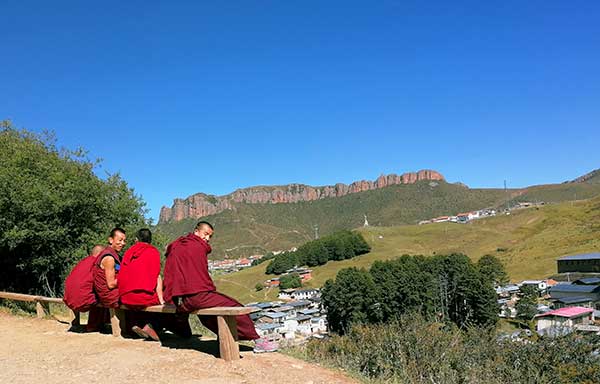
6 days Gansu tour to Binglingsi, Xiahe and Langmusi
Tour type : Private tour Price : from *** Destinations : Lanzhou - linxia - Xiahe - Langmusi - Hezuo - Lanzhou -

12 Days Gansu Highlights Tour
Tour type : Private tour Price : from *** Destinations : Xian – Tianshui – Lanzhou – Xiahe – Langmusi – Hezuo – Zhangye – Jiayuguan - Dunhuang -
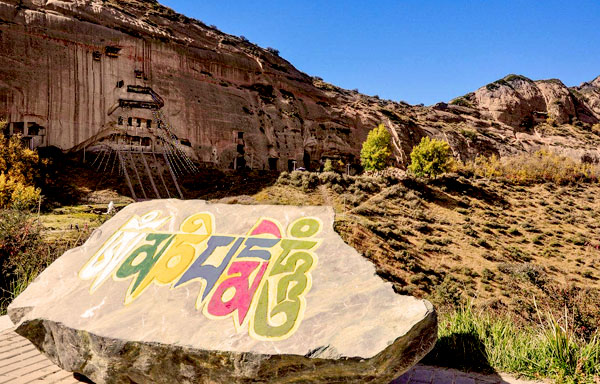
10 Days Silk Road Classic Tour
Tour type : Private tour Price : from *** Destinations : Xian - Zhangye - Jiayuguan - Dunhuang - Turpan - Urumqi -

5 Days Zhangye - Alxa youqi Highlights Tour
Tour type : Private Tour Price : from *** Destinations : Zhangye - Alax youqi - Zhangye

